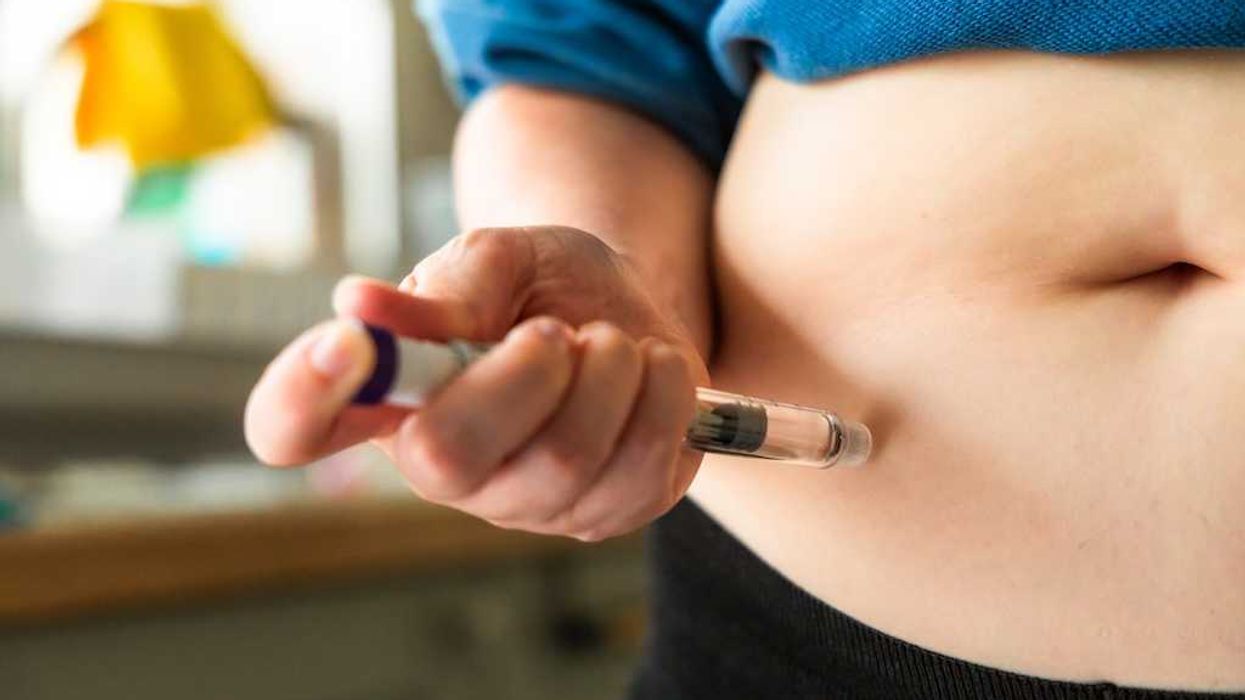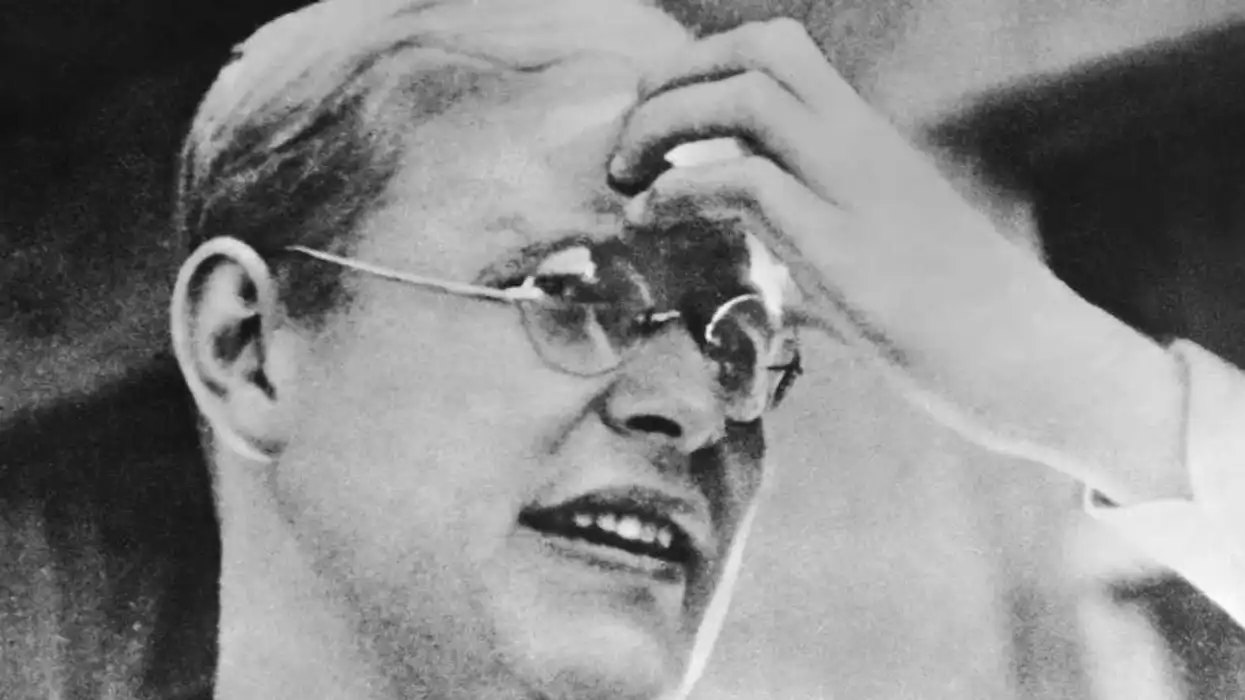© 2026 Blaze Media LLC. All rights reserved.
Ex-Gays? Study Claims it May Be Possible to Change One's Sexual Orientation
October 28, 2011
"...change is definitely not impossible, and it's probably not uncommon..."

When it comes to homosexuality, it seems everyone has an opinion. From policy discussions about whether gay marriage should be legalized to debates over religious freedom and the right to speak out against gay marriage and adoption, the issue remains contentious. Now, a study published in a peer-reviewed journal is alleging that some gays and lesbians may be able change their sexual orientation.
 The seven-year study followed 61 subjects for a period of six or seven years, finding that 23 percent of them were, as they reported, successful in converting to heterosexual orientation. An additional 30 percent reported what the Christian Examiner calls "stable behavioral chastity with significate dis-identification with gay orientation." Study co-author Stanton L. Jones (Jones conducted it along with Mark A. Yarhouse), a psychologist at Wheaton College, explains:
The seven-year study followed 61 subjects for a period of six or seven years, finding that 23 percent of them were, as they reported, successful in converting to heterosexual orientation. An additional 30 percent reported what the Christian Examiner calls "stable behavioral chastity with significate dis-identification with gay orientation." Study co-author Stanton L. Jones (Jones conducted it along with Mark A. Yarhouse), a psychologist at Wheaton College, explains:
"The results that we report in our study suggest that change is definitely not impossible, and it's probably not uncommon, either. That doesn't mean that change is easy. We think that these results need to be taken into account as a way of respecting the religious freedom of individuals."
These results, whether valid or not, will likely create angst and debate between those individuals who believe conversion is possible and those who adhere to the notion that people are born gay and cannot change.
The study, which is thought to be the first of its kind, followed people who were voluntarily taking part in various Christian ministries associated with Exodus International. Here is Exodus' mission:
Through our unique programs and resources, Exodus Student Ministries endeavors to minister to young people affected by homosexuality and their families. We also strive to equip those in the Body of Christ who minister to students with the tools they need to make a difference in the lives of young people struggling in these areas.Our mission is: Mobilizing the body of Christ to minister grace and truth to a world impacted by homosexuality.
While partial results were released back in 2007 and 2009, the study is now making its way into the peer-reviewed Journal of Sex and Marital Therapy. As a result, Jones and Yarhouse are hopeful that it will be given more ample attention after it was dismissed by critics when results first emerged a few years ago.
 "[Its placement in the journal] signifies that the methodology meets the basic requirements for being taken seriously as a piece of scientific literature," Jones explains.
"[Its placement in the journal] signifies that the methodology meets the basic requirements for being taken seriously as a piece of scientific literature," Jones explains.
"Critics still dismiss the study. They say, 'Well, it's only one study,' or they say it's not a large enough sample. But I think the study stands as a significant challenge to the reigning views on this matter, especially given that the major mental health organizations say in alternate voices that change of sexual orientation is impossible or that change in sexual orientation is highly unlikely."
Jones and others who embrace this ideology though -- that change is possible -- definitely have an uphill battle ahead of them. The American Psychological Association, among other experts on these matters, seems to believe that the notion that someone's sexuality can be changed is not a healthy one. As you may recall, GOP presidential candidate Michele Bachmann and her husband, Marcus, were under fire earlier this year for allegedly endorsing and utilizing "reparative" treatments.
Critics of the study (Jones and Yarhouse respond to them here) say that it falls flat because it doesn't record the physical responses of subjects when they are exposed to sexual stimulus. Exodus, though, wouldn't support this, seeing as subjects would need to be exposed to pornography to monitor how the brain and body respond to it. " ... People who are undergoing change don't want to submit themselves to exposure to gay porn as a measurement method as to whether they have changed," Jones explained.
The small sample size is definitely a problem when it comes to looking at an overall picture. But even the study's authors acknowledge this, as they contend that it would not be appropriate to assume, based on their research, that 23 percent of people can change their sexual orientation (based on the 23 people in their study who who to have changed). Still, the authors believe that the study corroborates the idea that change is possible.
The literature can be downloaded and read and the researchers' book on the subject can be found here.
(H/T: Christian Examiner)
Want to leave a tip?
We answer to you. Help keep our content free of advertisers and big tech censorship by leaving a tip today.
Want to join the conversation?
Already a subscriber?
Billy Hallowell is a digital TV host and interviewer for Faithwire and CBN News and the co-host of CBN’s "Quick Start Podcast."
Billy Hallowell
Billy Hallowell is a digital TV host and interviewer for Faithwire and CBN News and the co-host of CBN’s "Quick Start Podcast."
more stories
Sign up for the Blaze newsletter
By signing up, you agree to our Privacy Policy and Terms of Use, and agree to receive content that may sometimes include advertisements. You may opt out at any time.
Related Content
© 2026 Blaze Media LLC. All rights reserved.
Get the stories that matter most delivered directly to your inbox.
By signing up, you agree to our Privacy Policy and Terms of Use, and agree to receive content that may sometimes include advertisements. You may opt out at any time.






